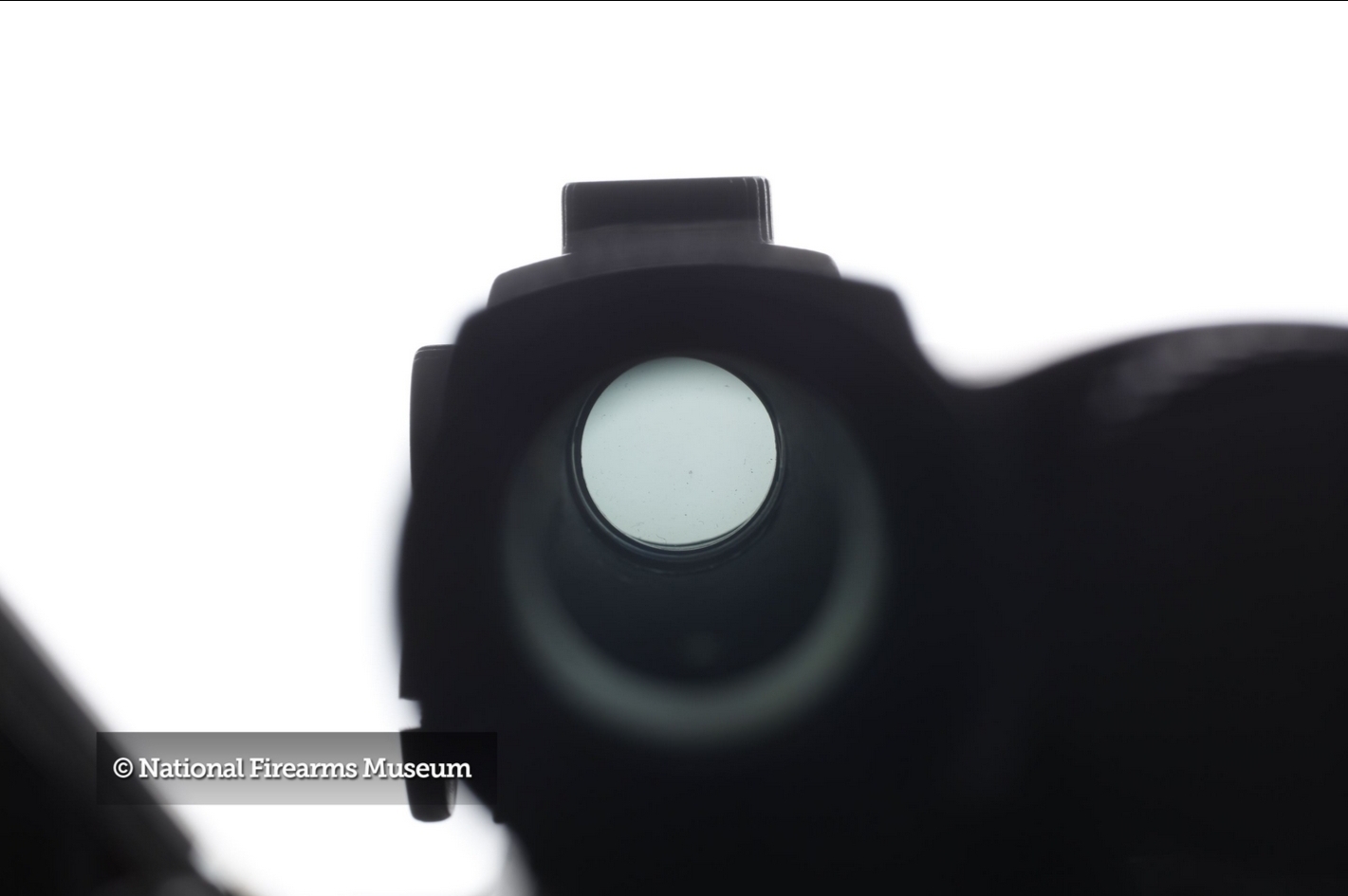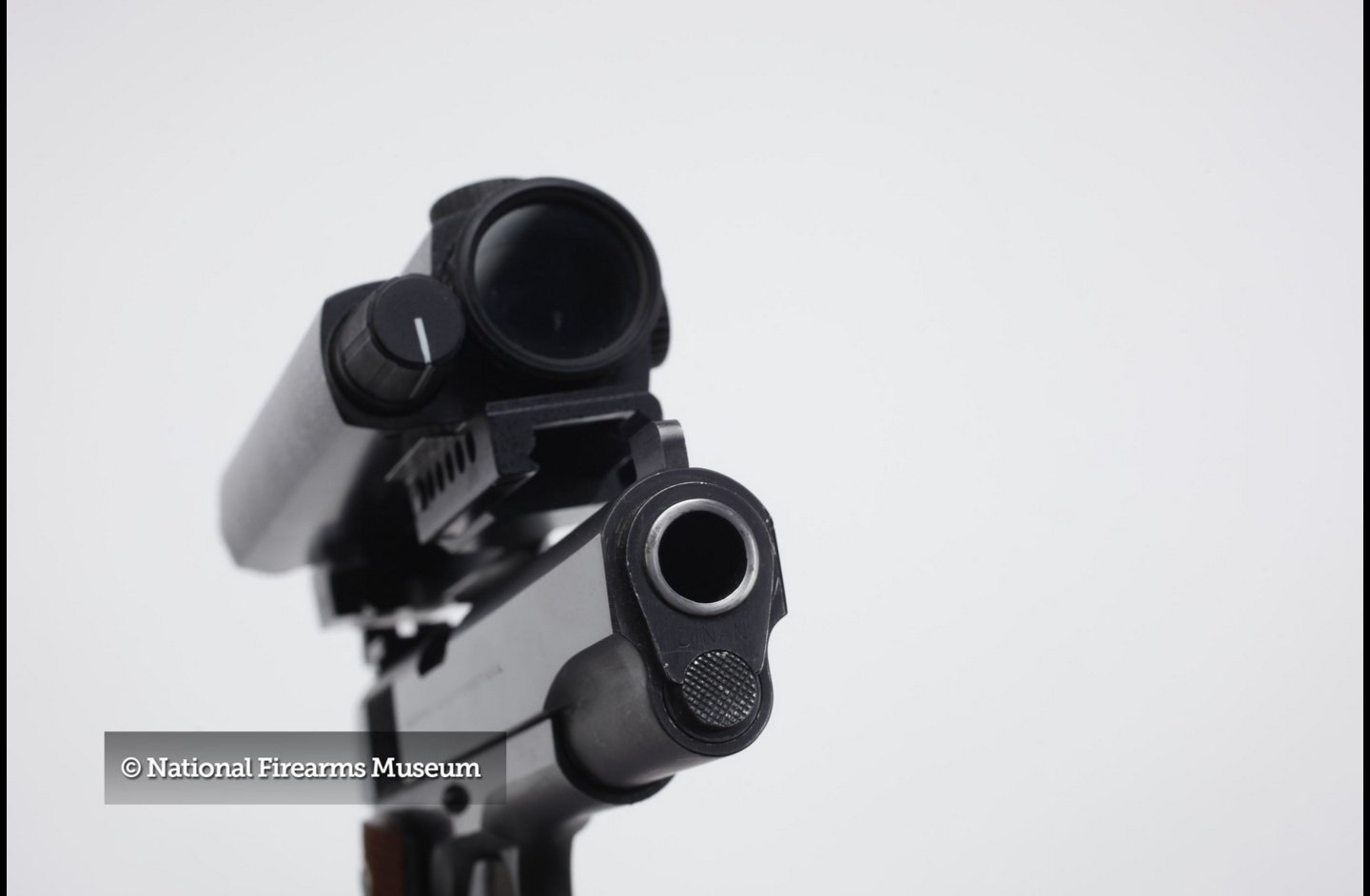Fitted with a “red dot” Aimpoint optical sight, this target semi-automatic could be used in today’s Camp Perry matches.


So, here’s a question I’ve been meaning to ask for a while:
How is it that red dot sights on gas-cycling handguns work? Surely if they’re mounted to the slide, the sheer force on discharging the weapon, coupled with the forces when the buffer spring reverses the direction of travel, and the sudden stop when the cycling is complete would surely be enough to throw the zeroing of it off, and each subsequent shot be unreliable?
The only answer I can think of is to mount the sight to the receiver, but surely that would cause problems with the balance and cycling, and make the handgun super unwieldy?
Genuine question, never used one on a handgun for fear of turning it into a million bits of broken glass on the first discharge.
Modern micro red dots are mounted to the slide. And are designed to withstand the g forces from the slide cycling. They will hold zero for thousands of rounds.
The sight pictured here certainly would not be able to do that. But that’s what 40+ years of development in optics and materials will do.
Awesome, thank you!
I second that answer. Pistol red dots for serious use like self defense or in a military have only become accepted by most people in the past 10 years.
When you talk about “gas-cycling”, do you mean gas-operated? In that case there aren’t many of those guns around. For instance the desert eagle has a fixed barrel & shroud and any attachments go on that fixed section.
The Laugo Alien is similar with a fixed top strap, and it relies on gas-delayed blowback. This is to increase accuracy of both the barrel and the sight, so it’s something people do take into account.
Most handguns are short recoil operated or blowback and have mounts that reciprocate with the slide, in which case the other answer you got was pretty good. I’d just add that with light high strength polymers and miniaturisation, the red dots can be extremely lightweight and don’t deal with huge forces to begin with, because it doesn’t take a lot to accelerate them.
I apologise in advance, the British aren’t as au fait with handguns as the test of the world.
I mean that - when a round is discharged - some of the exhaust gases are used to push the top slide back against the recoil spring, and cycle the weapon in a semi-automatic fashion, á la Glock 17 or Browning 9mm HP.
Either way, it just seems insane that modern optics can survive those kinds of forces. Kinda cool actually.
Okay, so it sounds like you just mean semi-automatic, which is the term that people will understand that concept by.
For the technical terms, there are three main ways it can work, called blowback, recoil operated and gas operated.
I suppose descriptively you’re not wrong, since the forces required to do all of these are initially transmitted via gasses. It’s just the term “gas cycled” caught me out because it’s got a technical meaning.
The glock and the browning are both recoil operated, as are most handguns of that basic description. Some are blowback, and gas operated is rare for a pistol because it’s massively overengineered for a simple pistol calibre. It’s usually used for rifles which have more powerful rounds.
I’m Aussie and we don’t have a lot of guns here either, it’s just my gun nerd granddad who had piles of books on the subject that I learned from.
Reminds me of that scene where OJ Simpson assembles a handgun.
Reminded me of this short:
Warning: good amount of explicit language
Scoped Ruger Mark IV Tactical [0:14]




